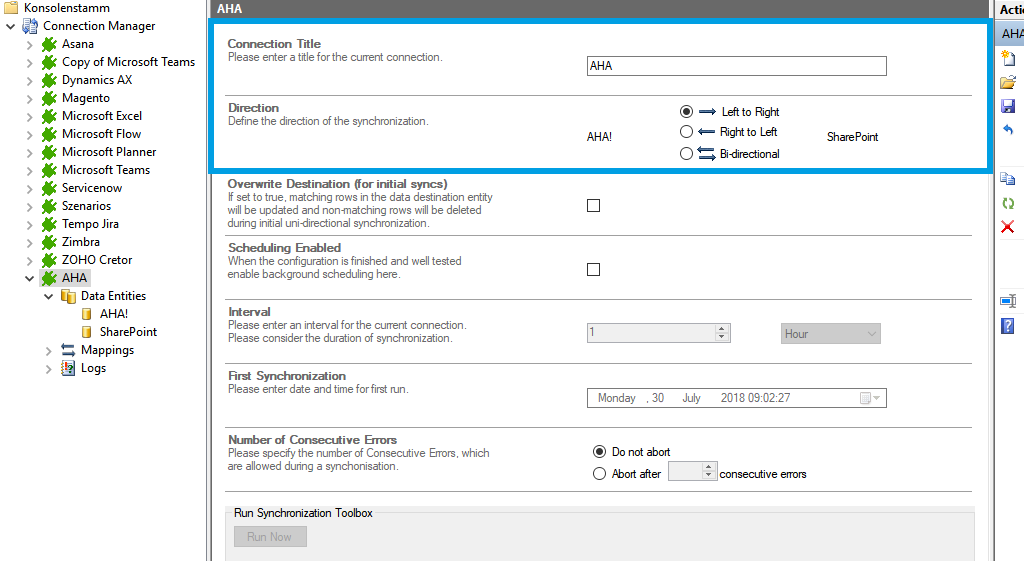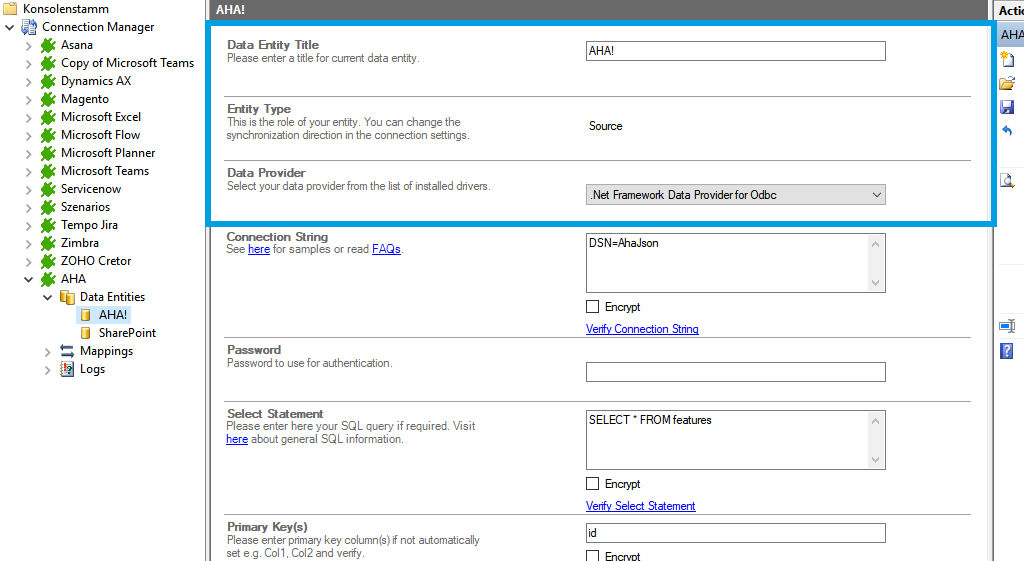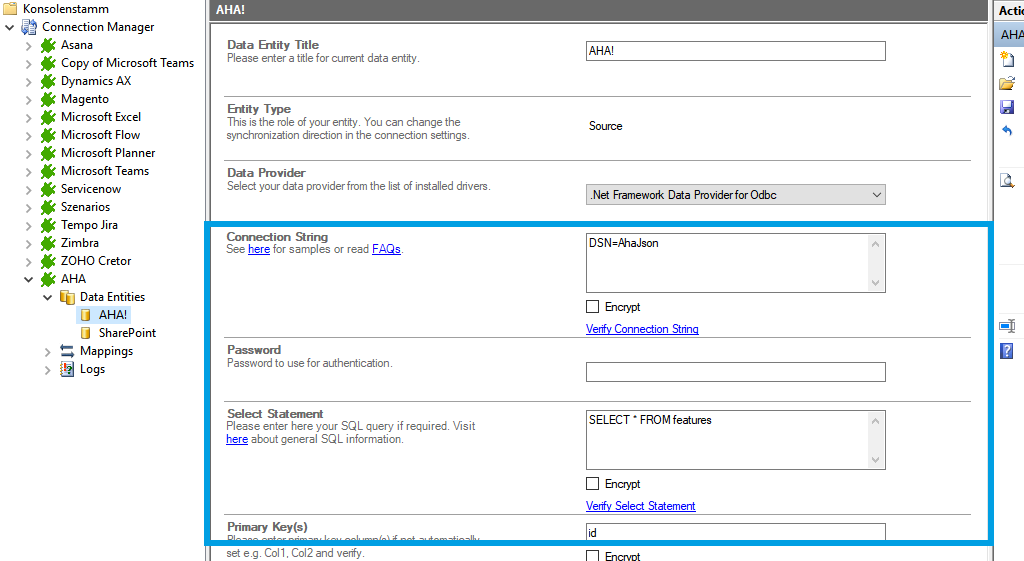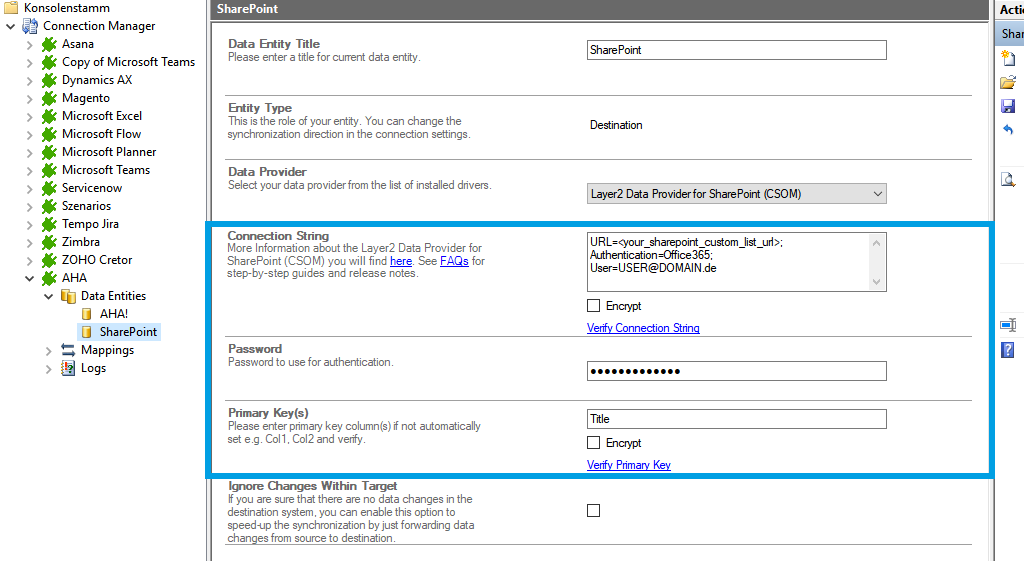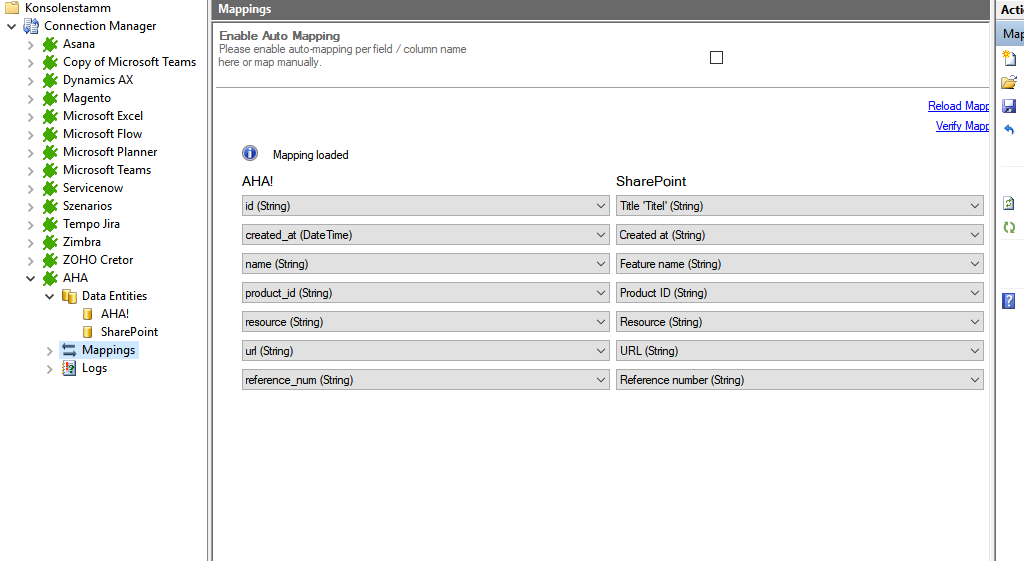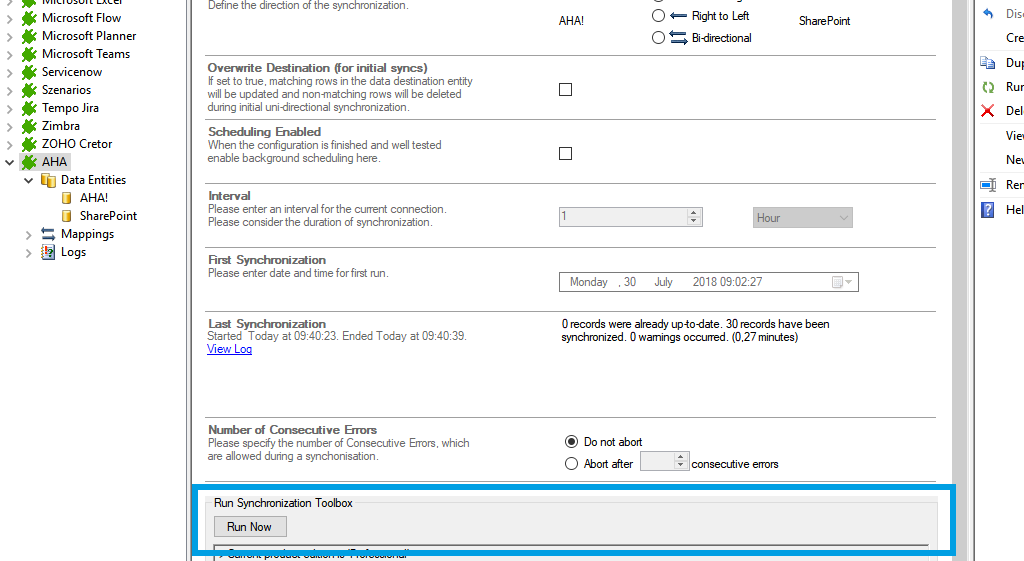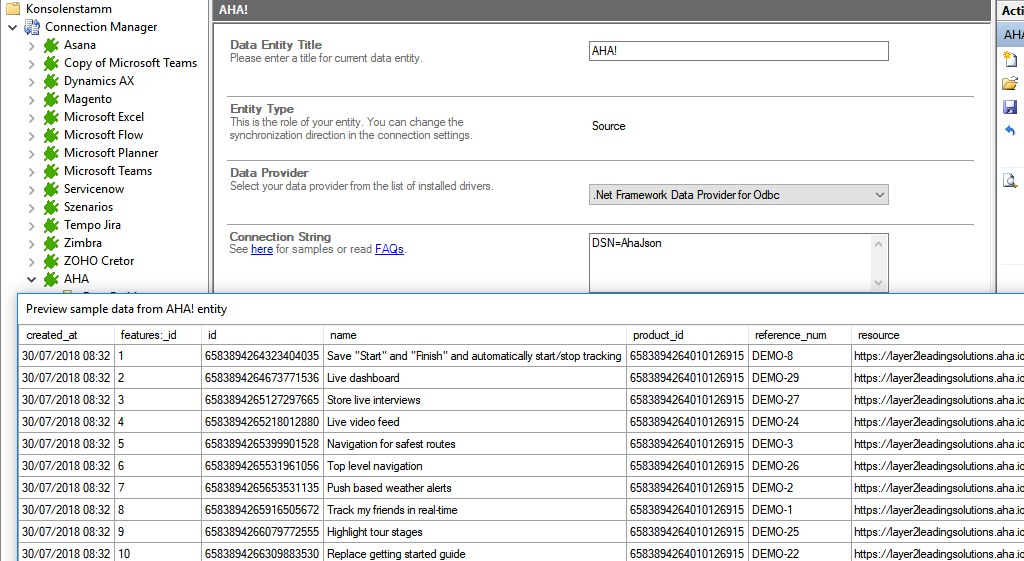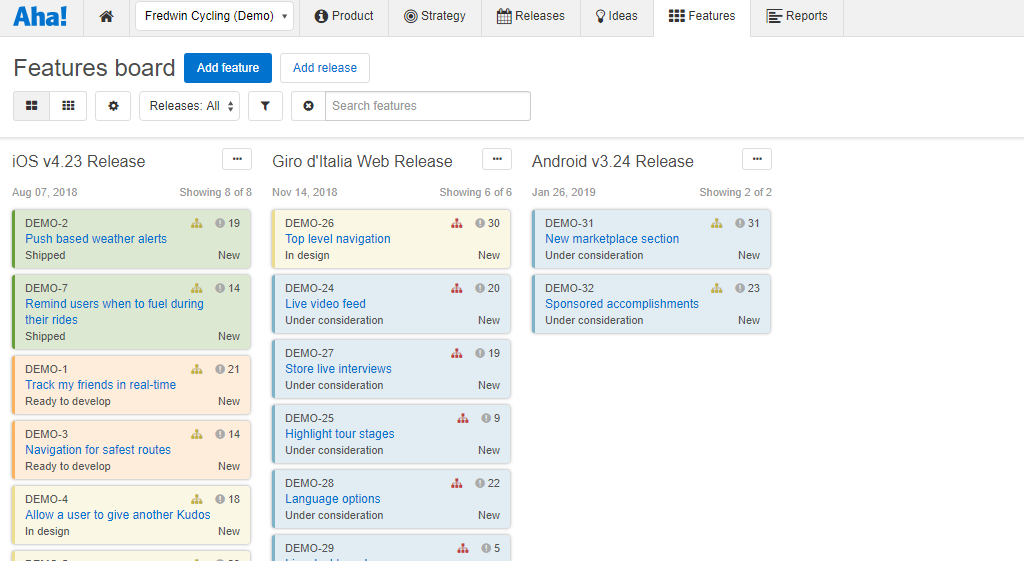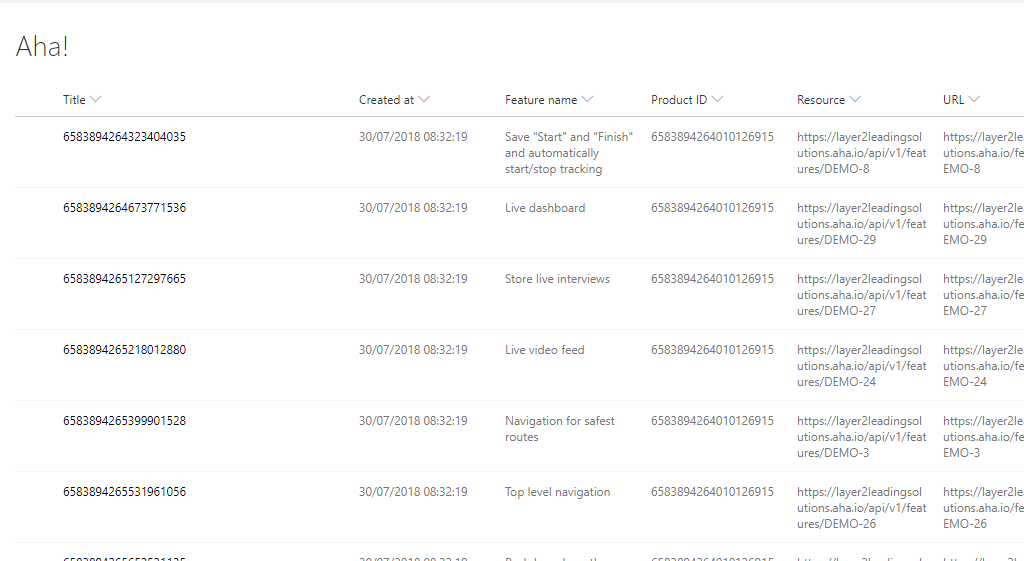Quick and easy installation in just minutes. Combine your data automatically in the background and benefit of better insights and greater revenues.
Aha! Data Integration
Aha! data can be integrated and synchronized codeless with various external systems,
Learn on this page how the data integration of Aha! is working with the Layer2 Cloud Connector by using the step-by-step screenshot tutorial and reading our important advice and frequently asked questions. Make use of the benefits and features of this data integration tool by trying it out yourself: Free Trial Registration
AHA! INTEGRATION - HOW IT WORKS
In fact, you only need to do the 5 following steps to get your Aha! data integration started.
- Setup your connection as required: one-way in this case.
- Setup your data source, in this case Aha!
- Setup your target– for example a Microsoft SharePoint list or library.
- Setup your mapping.
- Start your project!
Aha! step-by-step data integration via the Layer2 Cloud Connector
Use this step-by-step-instruction to get through the whole product and data integration configuration easily. Some steps require a copy-paste task of code snippets. Please follow the recommendations in this instruction closely.
Before you can proceed with the configuration, please be aware that
- You need to have the ODBC Provider installed on the computer that runs the Layer2 Cloud Connector. You can find the component on the CDATA page.
Specific Connection String for your Aha! integration
Please copy and paste this connection string and the "Select Statement" into the designated field like described
DSN=AhaJson
Please enter the following SQL query into the "Select Statement" as well and adjust the placeholder.
SELECT * FROM features
Benefits of using the Layer2 Cloud Connector for your Aha! data integration
Known limitations and workarounds
Please take into account our
- URI Issue: You must specify the URI you want to get the data from in your ODBC connection. You will only get the data from this URI. If you want other data, you may change the URI in the ODBC driver. Some relevant URI’s can be found in the documentation: https://www.aha.io/api/resources/
Find YOUR Destination pages here
Take your next steps



